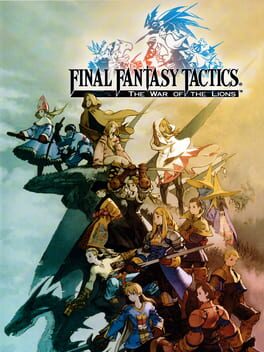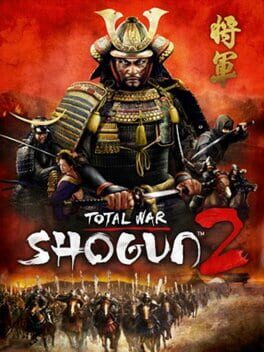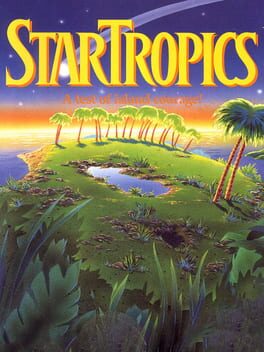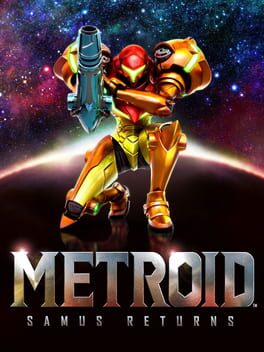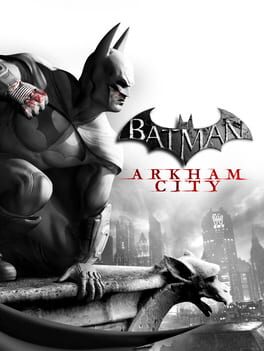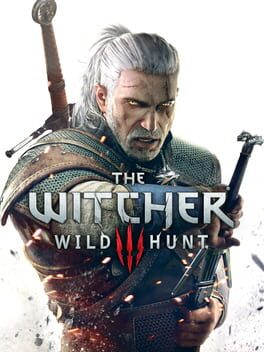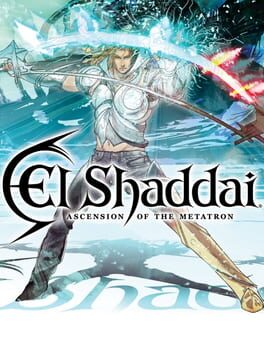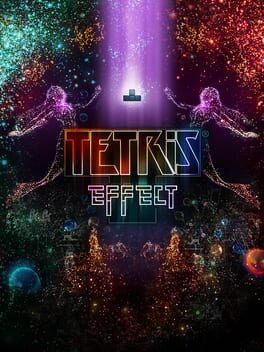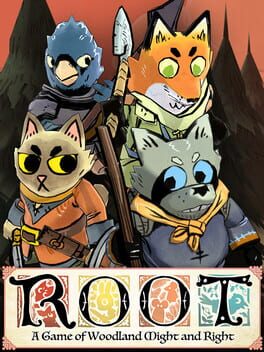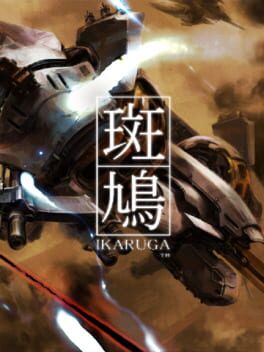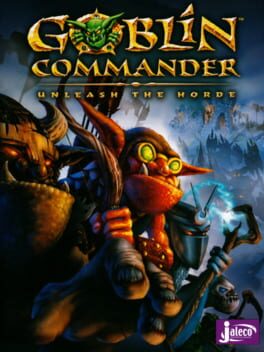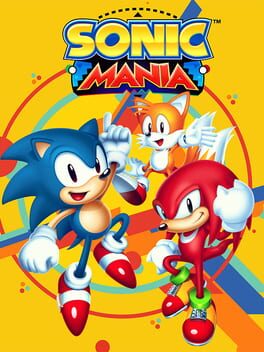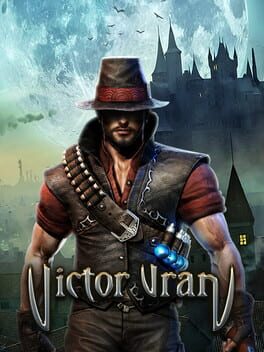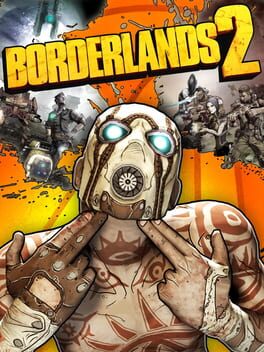synthezoid
I made it through a few story battles, but I hit a roadblock. I figured, hey, I haven't been trying to optimize my party much, so maybe I just need a bit more gear, some small stat increases. So I went back and shopped for some goods and fought some random encounters along the way, outfitting my party better than they were the first time. And then I replayed the battle. I lost, lost again, lost again. Something was wrong. I Googled it.
"Oh," the forums said, "you should be level 5 for that battle. Go grind." My units were all about level 2.
This game takes upwards of 40 or 50 hours to beat for most players. (https://howlongtobeat.com/game?id=3514) While I found the faux-Shakespearean dialogue immensely charming, I have yet to be convinced that I should spend another 40+ hours in this game if a third of those hours are just going to be replaying content I've already beaten. I wanted to like this game, but who has that much time to waste?
"Oh," the forums said, "you should be level 5 for that battle. Go grind." My units were all about level 2.
This game takes upwards of 40 or 50 hours to beat for most players. (https://howlongtobeat.com/game?id=3514) While I found the faux-Shakespearean dialogue immensely charming, I have yet to be convinced that I should spend another 40+ hours in this game if a third of those hours are just going to be replaying content I've already beaten. I wanted to like this game, but who has that much time to waste?
2011
1990
Samus Returns is a game that should have been let down by repeated bosses and a slightly more linear world design with fewer truly hidden secrets, but which so thoroughly nails the core gameplay that I found myself obsessively plowing through it to completion over the span of a week or so. Is it objectively flawed? Sure. Is it a striking and absorbing return to form for a long-dormant series? Hell yes.
2017
This game has been talked about to death, hasn’t it? Since its release in 2017, Team Cherry’s ambitious debut has taken the world of indie gaming by storm. We’ve all seen its moody, blue-purple tones and friendly bug-faces gracing our Steam homepages by now. Maybe you’ve already bought the game and wandered its misty hallways for a few hours before dropping it to play Slay the Spire again. It’s okay. I won’t blame you. I did the same at first. Let me tell you why you should give it a closer look.
You’ve probably noticed from countless other reviews by now that Hollow Knight is highly derivative. The names Metroid and Dark Souls will be thrown around a lot. It’s a Metroidvania game (Insectroid?), after all–a game of sprawling, branching corridors locked by sensational and empowering items that serve as de facto keycards for doors you’ve passed and doors you’ve yet to find. Metroidvania games share a common DNA, and Dark Souls takes already takes influence from them, so really it’s just imitating a long line of refined imitations, right? Hollow Knight is just an exemplar of a genre and nothing more?
I wouldn’t say so, illustrative rhetorical question. Hollow Knight does not just distill elements from other games; that would be reductive. Hollow Knight is additive: it takes the formula of a Souls-like-Metroidvania game and then adds to it. It adds all of its interwoven stories and interlocking mechanisms and interconnected levels and interspersed secrets liberally, and uses them to create something distinctly new. The un-restriction of the map and your freedom to explore in so many directions feels bold and unprecedented even for a genre whose primary characteristic is that very freedom because of just how far it takes it. The open-endedness of its levels feels overwhelming in just the right way to inspire curiosity, and sequence-breaking almost loses its meaning given how loose “sequence” already is in the conjoining labyrinths of Hollow Knight. It makes Super Metroid look linear by comparison.
Hollow Knight also learns from its predecessors, carrying both the carefully crafted polish of Metroid and the expansiveness, customizability, and extensive postgame content of Castlevania. It even takes structural cues from Dark Souls, making boss fights engaging challenges that leave you looking forward to the next. (Though only the optional bosses really reach the level of difficulty of a true Souls boss, that’s not a problem–Hollow Knight simply isn’t interested in being Dark Souls, just in learning from its successes. You can see more of this influence in its worldbuilding.) It oozes atmosphere all its own, despite evoking feelings similar to the lonely dread of Metroid, the bleak mystery of Dark Souls, and the Gothic spookiness of Castlevania in equal measure.
The game does not just timidly rehash the decisions of more talented designers; it confidently re-asserts every decision it makes. It’s liable to remind you why you loved those classics by showing you a new experience which rivals the quality of those that inspired it. Hollow Knight‘s design is not a success of repetition, but, much like its gameplay, a success of exploration, finding new opportunities in well-trodden places.
You’ve probably noticed from countless other reviews by now that Hollow Knight is highly derivative. The names Metroid and Dark Souls will be thrown around a lot. It’s a Metroidvania game (Insectroid?), after all–a game of sprawling, branching corridors locked by sensational and empowering items that serve as de facto keycards for doors you’ve passed and doors you’ve yet to find. Metroidvania games share a common DNA, and Dark Souls takes already takes influence from them, so really it’s just imitating a long line of refined imitations, right? Hollow Knight is just an exemplar of a genre and nothing more?
I wouldn’t say so, illustrative rhetorical question. Hollow Knight does not just distill elements from other games; that would be reductive. Hollow Knight is additive: it takes the formula of a Souls-like-Metroidvania game and then adds to it. It adds all of its interwoven stories and interlocking mechanisms and interconnected levels and interspersed secrets liberally, and uses them to create something distinctly new. The un-restriction of the map and your freedom to explore in so many directions feels bold and unprecedented even for a genre whose primary characteristic is that very freedom because of just how far it takes it. The open-endedness of its levels feels overwhelming in just the right way to inspire curiosity, and sequence-breaking almost loses its meaning given how loose “sequence” already is in the conjoining labyrinths of Hollow Knight. It makes Super Metroid look linear by comparison.
Hollow Knight also learns from its predecessors, carrying both the carefully crafted polish of Metroid and the expansiveness, customizability, and extensive postgame content of Castlevania. It even takes structural cues from Dark Souls, making boss fights engaging challenges that leave you looking forward to the next. (Though only the optional bosses really reach the level of difficulty of a true Souls boss, that’s not a problem–Hollow Knight simply isn’t interested in being Dark Souls, just in learning from its successes. You can see more of this influence in its worldbuilding.) It oozes atmosphere all its own, despite evoking feelings similar to the lonely dread of Metroid, the bleak mystery of Dark Souls, and the Gothic spookiness of Castlevania in equal measure.
The game does not just timidly rehash the decisions of more talented designers; it confidently re-asserts every decision it makes. It’s liable to remind you why you loved those classics by showing you a new experience which rivals the quality of those that inspired it. Hollow Knight‘s design is not a success of repetition, but, much like its gameplay, a success of exploration, finding new opportunities in well-trodden places.
2011
While the "makes you feel like Batman" review quip has been done to death, it stuck for a reason. Rocksteady perfected the superhero power fantasy so thoroughly that even Spider-Man is borrowing from it now.
An open but tightly crafted world, memorable characters and performances, and some unforgettable boss fights set this game apart from its already excellent predecessor. That its sequel was an ambitious but imperfect step back only cements what Arkham City got right: just about everything.
An open but tightly crafted world, memorable characters and performances, and some unforgettable boss fights set this game apart from its already excellent predecessor. That its sequel was an ambitious but imperfect step back only cements what Arkham City got right: just about everything.
This is one of the only single player games I've played to provide more than 100 hours of content (with the expansions) and have every minute of those hours feel justified. Even the side quests feel uniquely planned and cared for, like a labor of love or a second-born child. Choices can have long-term, weighty consequences. Every area in the game feels thought-out and crafted to a degree that some entire games never reach. The Witcher 3 is a rare accomplishment in RPGs, in storytelling, in games--one which occupies our time without wasting it, and one which reminds us that 'breadth' and 'depth' don't have to be antonyms. Bigger isn't always better, but it isn't always worse, either.
El Shaddai: Ascension of the Metatron is a criminally overlooked and underappreciated gem helmed by director Sawaki Takeyasu, previously a character designer and artist for games like Devil May Cry. While its slightly simpler combat mechanics might feel like a step back for fans of the complexity and intensity of that series, El Shaddai toes the line by providing a sense of novelty and wonder with every level and a colorful, ever-changing world of utter unreality befitting its bizarre apocryphal religious theme. Being ordered around by Lucifer himself on a cell phone will feel like the least unusual thing you've been through by the end of its brisk playtime, and for that feeling alone, it's one of the most memorable experiences I've ever had with a game.
2018
2020
2001
2017
Incredibly high quality, with more polish than the classics ever had, and a great blend of callbacks and new level mechanics. Not the hardest, but victory isn't handed out either. This might actually be the best Sonic game for how well it recognizes what makes Sonic fun and how little it gets in the way of that-- no nonsense cutscenes or story elements, no werehog levels (the only alternate modes are optional!), but a lot of going fast, a lot of exploration, a lot of alternate paths and secret powerups, a lot of neat boss battles... it isn't just Sonic the Hedgehog as it was on the Genesis-- it's Sonic as you remember it, or maybe even better. And if you've never played a Sonic game before? You're in for a treat.
2015
This is a game concept I'd been looking for for a while: a Diablo-style ARPG with a bigger emphasis on the action portion. I love the deep character building and variety of gameplay styles of Diablo, Path of Exile, Grim Dawn, and so on, but sometimes, some of those games devolve into idle button clicking to grind and farm higher. A more tactical take on the genre would be a breath of fresh air. And so this game is.
It introduces dodge rolling (don't say Dark Souls!) like in Dark Souls, (fuck!) a new WASD and controller-friendly control scheme (Diablo-style click-to-walk is also an option, but this game is frankly not built for that), and even a jump button. Also like Dark Souls (sorry) your abilities and playstyle are determined more by your weapon than your class. The result is a game that asks more of your attention and dexterity, but unfortunately, it dials back the other parts that make the best ARPGs just that.
Remember how I said weapons dictate your playstyle more than class? This is the result of the classes being pretty simple in effect and not too engaging. There aren't a whole lot of stats to tinker with on level up, and most of the "building" comes in a set of cards you can pick for your character that provide passive stat boosts alongside the affixes on your gear. Yes, this puts more Action in Action RPG, but it severely cuts down on the RPG side. That's not to say that there aren't plenty of possible ways to play, but unless the game introduces serious complexity that I haven't yet discovered down the road, it simply doesn't have the depth to compare to most of its competitors in that regard. While streamlining can be nice sometimes, it feels like there's very little class or character fantasy to latch onto and say "this is MY character, and they reflect how I want to play the game." The result is that the customization which does exist in this game does very little to capture the imagination and encourage creative new ways of playing.
The weapon you wield mostly decides what attacks you'll have access to, not you, the player. There are no multifaceted skill trees like Diablo 2 or skill astral cartographies like Path of Exile. Just you, a weapon, and a few other details you can tinker with. There are just few enough points of customization that it almost felt arbitrary what I picked since the odds of them actually coming together to make a build that was meaningfully better were so slim. Maybe in the endgame this becomes relevant, but if any ARPG should have exciting leveling, it's this one, since it promises more engagement no matter what your build is. The problem is that you're not promised anything particularly exciting for hitting the next level.
Luckily, the core gameplay loop is pretty fun.
The action combat works, though it will depend heavily on how you click with your weapon of choice. (I really expected rapiers to be fun, but honestly, they feel slow and clunky compared to the big AOE of a shotgun, chunky swings of a scythe, or chain lightning madness of a lightning gun.) It isn't the most exciting action gameplay, but it works well enough to be engaging for a bit, if not exactly addicting. The enemies have a solid variety, and unlike certain games in the genre, have a variety of abilities, behaviors, and playstyles that are worth considering while you play. It's not a game about simply one-shotting or getting one-shot. Still, it isn't quite as satisfying at its core as the addition of first-person shooting to the loot-grinding ARPG formula in something like Borderlands, and it lacks the joyful simplicity of clicking on dudes in Diablo, but it really is a good time in moderation. Having both a jump and a roll does feel redundant, however, and with the isometric view, jumping is a bit awkward and has a habit of getting snagged on the level.
Another strong point of Diablo (and some other great ARPGs) has always been its compelling lore and powerful atmosphere. This game's story is largely a matter of generic cliche, though if you're not annoyed by the narrator, you might find the tone to your liking. It's pretty enough to look at. It's neither as colorful as Torchlight nor as dark as Diablo, but it occupies a comfortable space in between. The lead is also voiced by Geralt of Rivia, which is a fun touch, but unfortunately he doesn't have all that much personality. It's pleasant, but it won't keep you in the world unless the gameplay hooks you.
These are all fairly early impressions, but after a few hours, I think I'll only come back to this game when I'm in the mood. I might beat it eventually. I probably won't replay it or proceed very far into whatever endgame content it has. But at its core, it is a good game. I do wish more developers would try to find ways of adding tactics and engagement to this genre, but this one feels like an incomplete first stab at that. The first hour or so was exciting, honestly, but after that, I realized how little I was looking forward to progressing, since it seemed like there wasn't much new to see. Still, I've enjoyed it so far and might come back to it and find I was missing out on what makes it great.
If you're turned off by ARPGs that feel like brainless farming, or if you love the genre but want to see it taken in a different direction, try this, but maybe get it on sale. It's not the future of ARPGs, but hopefully it's a slight premonition.
Then again, if I want a dead simple ARPG with rolling, maybe I'll just play Minecraft Dungeons.
It introduces dodge rolling (don't say Dark Souls!) like in Dark Souls, (fuck!) a new WASD and controller-friendly control scheme (Diablo-style click-to-walk is also an option, but this game is frankly not built for that), and even a jump button. Also like Dark Souls (sorry) your abilities and playstyle are determined more by your weapon than your class. The result is a game that asks more of your attention and dexterity, but unfortunately, it dials back the other parts that make the best ARPGs just that.
Remember how I said weapons dictate your playstyle more than class? This is the result of the classes being pretty simple in effect and not too engaging. There aren't a whole lot of stats to tinker with on level up, and most of the "building" comes in a set of cards you can pick for your character that provide passive stat boosts alongside the affixes on your gear. Yes, this puts more Action in Action RPG, but it severely cuts down on the RPG side. That's not to say that there aren't plenty of possible ways to play, but unless the game introduces serious complexity that I haven't yet discovered down the road, it simply doesn't have the depth to compare to most of its competitors in that regard. While streamlining can be nice sometimes, it feels like there's very little class or character fantasy to latch onto and say "this is MY character, and they reflect how I want to play the game." The result is that the customization which does exist in this game does very little to capture the imagination and encourage creative new ways of playing.
The weapon you wield mostly decides what attacks you'll have access to, not you, the player. There are no multifaceted skill trees like Diablo 2 or skill astral cartographies like Path of Exile. Just you, a weapon, and a few other details you can tinker with. There are just few enough points of customization that it almost felt arbitrary what I picked since the odds of them actually coming together to make a build that was meaningfully better were so slim. Maybe in the endgame this becomes relevant, but if any ARPG should have exciting leveling, it's this one, since it promises more engagement no matter what your build is. The problem is that you're not promised anything particularly exciting for hitting the next level.
Luckily, the core gameplay loop is pretty fun.
The action combat works, though it will depend heavily on how you click with your weapon of choice. (I really expected rapiers to be fun, but honestly, they feel slow and clunky compared to the big AOE of a shotgun, chunky swings of a scythe, or chain lightning madness of a lightning gun.) It isn't the most exciting action gameplay, but it works well enough to be engaging for a bit, if not exactly addicting. The enemies have a solid variety, and unlike certain games in the genre, have a variety of abilities, behaviors, and playstyles that are worth considering while you play. It's not a game about simply one-shotting or getting one-shot. Still, it isn't quite as satisfying at its core as the addition of first-person shooting to the loot-grinding ARPG formula in something like Borderlands, and it lacks the joyful simplicity of clicking on dudes in Diablo, but it really is a good time in moderation. Having both a jump and a roll does feel redundant, however, and with the isometric view, jumping is a bit awkward and has a habit of getting snagged on the level.
Another strong point of Diablo (and some other great ARPGs) has always been its compelling lore and powerful atmosphere. This game's story is largely a matter of generic cliche, though if you're not annoyed by the narrator, you might find the tone to your liking. It's pretty enough to look at. It's neither as colorful as Torchlight nor as dark as Diablo, but it occupies a comfortable space in between. The lead is also voiced by Geralt of Rivia, which is a fun touch, but unfortunately he doesn't have all that much personality. It's pleasant, but it won't keep you in the world unless the gameplay hooks you.
These are all fairly early impressions, but after a few hours, I think I'll only come back to this game when I'm in the mood. I might beat it eventually. I probably won't replay it or proceed very far into whatever endgame content it has. But at its core, it is a good game. I do wish more developers would try to find ways of adding tactics and engagement to this genre, but this one feels like an incomplete first stab at that. The first hour or so was exciting, honestly, but after that, I realized how little I was looking forward to progressing, since it seemed like there wasn't much new to see. Still, I've enjoyed it so far and might come back to it and find I was missing out on what makes it great.
If you're turned off by ARPGs that feel like brainless farming, or if you love the genre but want to see it taken in a different direction, try this, but maybe get it on sale. It's not the future of ARPGs, but hopefully it's a slight premonition.
Then again, if I want a dead simple ARPG with rolling, maybe I'll just play Minecraft Dungeons.
2012
ARPG meets FPS: the quintessential looter-shooter. The itemization and story driven campaign structure mirror Diablo 2 perfectly, as does the lack of an endgame beyond replaying the game on higher difficulties.
Another thing that sets Borderlands and Diablo apart from their competition is their distinctive identities. Diablo's dark, gothic atmosphere is iconic, and Borderlands' comic stylings and irreverent humor are just as distinctive and memorable. And popular. It's your call how funny you think Zer0 saying his "trap card" voice line for the thousandth time is, but a lot of people love this game's humor and identity. Personally, I don't think it has aged all that well. When it came out, this sort of self-aware, non-stop humor was less common, but it doesn't feel as fresh in the year 2020, and once the shock value wears off, it doesn't feel as clever as it wants to be. Still, it's not badly written. The characters range from tolerable to likable and the actual narrative is fine--in fact, the main questline gets pretty engaging by the end, though it takes a while to pick up and some of the "oops, you've been mildly inconvenienced, go finish a new questline to get back to the original goal" missions break the pacing a bit much. (The side content runs the gamut from varied, well-scripted unique challenges to "kill x things" or "fetch x" quests--but that's okay, I suppose, since ARPGs usually manage to make those sorts of quests fun enough, and this game is no exception.) But I rarely find myself actually laughing at it-- most of the time I'm idly amused by it while I sprint my way through the real appeal of the game: shooting enemies, killing bosses, and collecting better randomized gear.
That part of the game is pretty good. The gunplay isn't as tight or polished as the best FPSes, but those games don't have this one's itemization or RPG systems, so it's a fair tradeoff. Still, the simple act of shooting a gun could stand to be a bit more satisfying. The reliance on an accuracy stat to keep your gun from swaying wildly while your mouse is idle means that it feels better the longer you play, but I'm not sure it's a good idea to make the player wait for the gunplay to actually feel good. It's similar to what the original Deus Ex does, actually, but Deus Ex offers ways to play the game beyond shooting things. Here, having to invest points in simply being able to shoot where you aim feels strange.
The classes are cool, and while the skill tree system is fairly simple, it offers several different ways to build each class. I'm not sure how viable they all are, but, being a pretty casual-friendly game, it seems like you're not likely to break your character by the end of the story mode unless you spread your points recklessly, and even then, you can respec easily enough. Some abilities seem more balanced around group play (and classes-- my squishy, sneaky, sniper-focused assassin has a much harder time alone in some areas than others), but there's not enough scaling to make drop-in, drop-out play seamless. When all players are very close in level, co-op is a great experience, but unless you schedule your play with your friends or roll a separate character to play with them, it might get a bit awkward keeping everyone in sync. Which is a shame, because having a set of allies with a variety of abilities is genuinely more fun than playing alone. There are no closed servers, so a trading economy like in Diablo 2 or Path of Exile is absolutely not a thing, nor are there any opportunities to find random players like the MMO-lite scenarios of Destiny, but that does at least mean you're free to play offline all you want. Unfortunately the game isn't very moddable, so there's not much in the way of custom content available.
All in all, it's a pretty compelling, genre-blending effort, with a hell of a lot more polish than the first Borderlands game (and I haven't yet played the third; maybe it totally outclasses this one--but then, that one isn't available in a bundle with a bunch of DLC and a whole other game for a few dollars on sale). But Borderlands 2 has some warts as well. Jumping is annoyingly floaty and the environments are occasionally awkward to navigate. The sensitivity settings are a bit more coarse than I'd like for a PC game. There's no autoloot button for nearby ammo or currency, leading to a lot of unnecessary E key mashing. The gunplay is just decent, not great. You'll either find the writing great or grating. And, as mentioned, the endgame is limited, meaning that your motivation to keep leveling and farming better gear will be dependent on how much you like repeating the main quest. But at least going through the main quest is, by and large, a pretty good time.
Another thing that sets Borderlands and Diablo apart from their competition is their distinctive identities. Diablo's dark, gothic atmosphere is iconic, and Borderlands' comic stylings and irreverent humor are just as distinctive and memorable. And popular. It's your call how funny you think Zer0 saying his "trap card" voice line for the thousandth time is, but a lot of people love this game's humor and identity. Personally, I don't think it has aged all that well. When it came out, this sort of self-aware, non-stop humor was less common, but it doesn't feel as fresh in the year 2020, and once the shock value wears off, it doesn't feel as clever as it wants to be. Still, it's not badly written. The characters range from tolerable to likable and the actual narrative is fine--in fact, the main questline gets pretty engaging by the end, though it takes a while to pick up and some of the "oops, you've been mildly inconvenienced, go finish a new questline to get back to the original goal" missions break the pacing a bit much. (The side content runs the gamut from varied, well-scripted unique challenges to "kill x things" or "fetch x" quests--but that's okay, I suppose, since ARPGs usually manage to make those sorts of quests fun enough, and this game is no exception.) But I rarely find myself actually laughing at it-- most of the time I'm idly amused by it while I sprint my way through the real appeal of the game: shooting enemies, killing bosses, and collecting better randomized gear.
That part of the game is pretty good. The gunplay isn't as tight or polished as the best FPSes, but those games don't have this one's itemization or RPG systems, so it's a fair tradeoff. Still, the simple act of shooting a gun could stand to be a bit more satisfying. The reliance on an accuracy stat to keep your gun from swaying wildly while your mouse is idle means that it feels better the longer you play, but I'm not sure it's a good idea to make the player wait for the gunplay to actually feel good. It's similar to what the original Deus Ex does, actually, but Deus Ex offers ways to play the game beyond shooting things. Here, having to invest points in simply being able to shoot where you aim feels strange.
The classes are cool, and while the skill tree system is fairly simple, it offers several different ways to build each class. I'm not sure how viable they all are, but, being a pretty casual-friendly game, it seems like you're not likely to break your character by the end of the story mode unless you spread your points recklessly, and even then, you can respec easily enough. Some abilities seem more balanced around group play (and classes-- my squishy, sneaky, sniper-focused assassin has a much harder time alone in some areas than others), but there's not enough scaling to make drop-in, drop-out play seamless. When all players are very close in level, co-op is a great experience, but unless you schedule your play with your friends or roll a separate character to play with them, it might get a bit awkward keeping everyone in sync. Which is a shame, because having a set of allies with a variety of abilities is genuinely more fun than playing alone. There are no closed servers, so a trading economy like in Diablo 2 or Path of Exile is absolutely not a thing, nor are there any opportunities to find random players like the MMO-lite scenarios of Destiny, but that does at least mean you're free to play offline all you want. Unfortunately the game isn't very moddable, so there's not much in the way of custom content available.
All in all, it's a pretty compelling, genre-blending effort, with a hell of a lot more polish than the first Borderlands game (and I haven't yet played the third; maybe it totally outclasses this one--but then, that one isn't available in a bundle with a bunch of DLC and a whole other game for a few dollars on sale). But Borderlands 2 has some warts as well. Jumping is annoyingly floaty and the environments are occasionally awkward to navigate. The sensitivity settings are a bit more coarse than I'd like for a PC game. There's no autoloot button for nearby ammo or currency, leading to a lot of unnecessary E key mashing. The gunplay is just decent, not great. You'll either find the writing great or grating. And, as mentioned, the endgame is limited, meaning that your motivation to keep leveling and farming better gear will be dependent on how much you like repeating the main quest. But at least going through the main quest is, by and large, a pretty good time.
